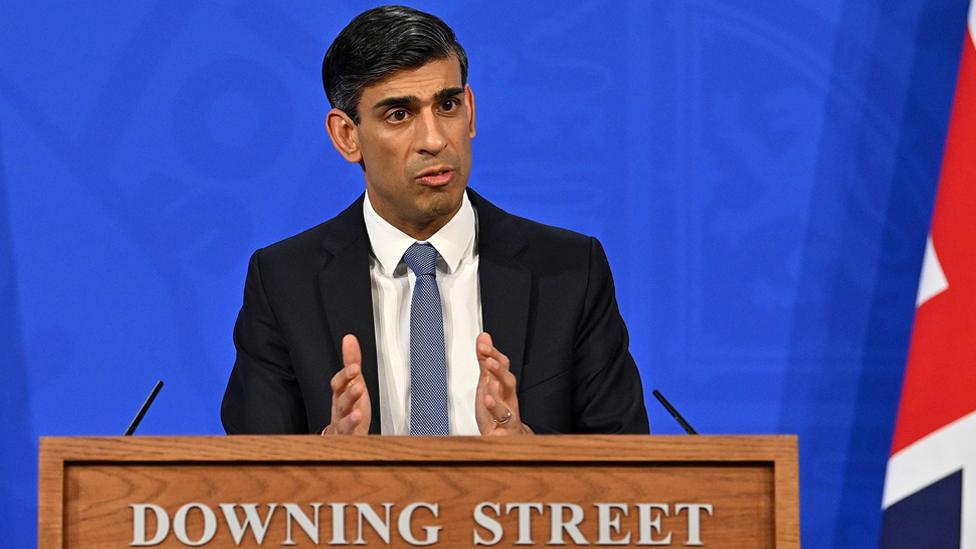Energy bills: 'I was watching in horror at price cap rise'
- Published
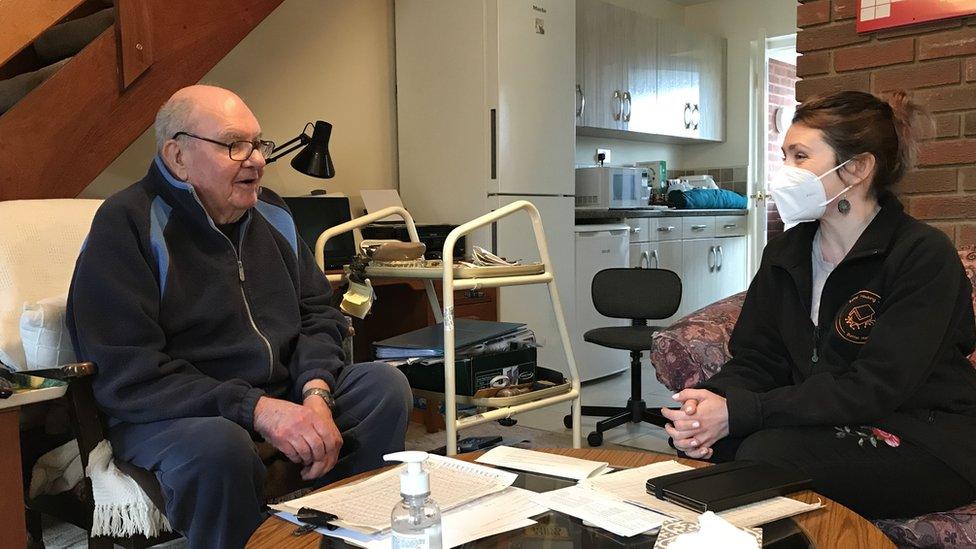
Pensioner David Hammond receives advice from energy adviser Beata Shaheen on whether there is anything more he can do save energy
The regulator Ofgem says millions of people will pay an extra £693 a year on their energy bills from April, a rise of 54%. The government is promising a series of measures to help with fuel bills but what do people facing the costs rise think?

"It is a very worrying situation'
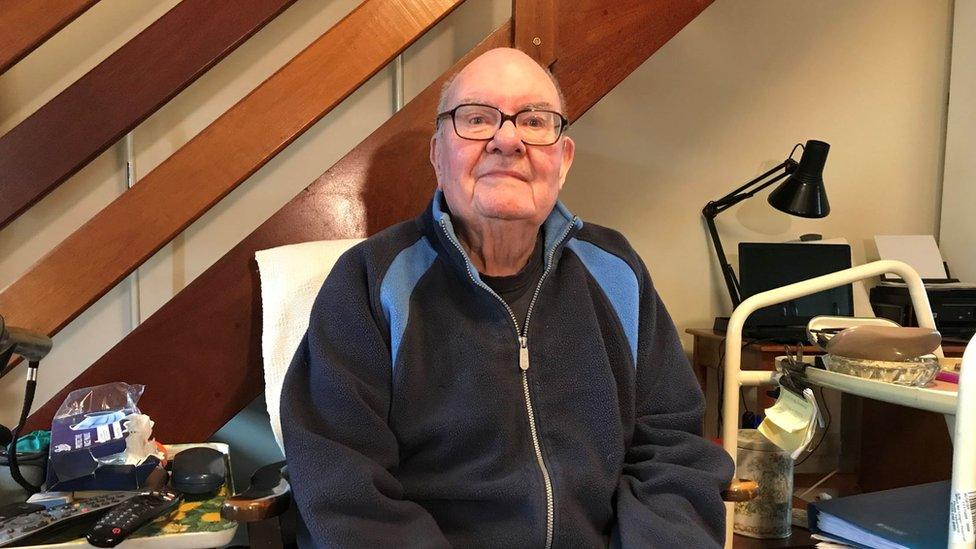
Milton Keynes resident David Hammond says his electricity bill could rise by at least 50% this year
David Hammond, from Milton Keynes, says his energy bill has doubled in the last six years.
The pensioner, who has lived in the same house for 32 years, says he and his wife would have to "see what more we can do to keep our costs down".
He says: "I need to come up with some of sort of plan as to what we can do to reduce our energy cost and give us a nice warm, comfortable standard of living.
"I am worried because I can't see how we're all going to come out of this. My wife and I are just two of many people who were probably watching in horror at what we've heard about the energy price cap and, like me, are wondering what exactly this is going to do to our heating bills.
"There is very little we can do that we haven't already done to reduce our expenditure. We hope to keep it where it is and try to manage but it is a very worrying situation."
Mr Hammond says "energy bills are just one part of the equation" in the rising cost of living.
"I'm not sure the government understand how worrying this is going to be for a lot of people," he adds.

'This will be devastating'

Energy advisor, Beata Shaheen, says people's mental and physical health will be affected by the price cap rise
Beata Shaheen, a domestic energy advisor from Milton Keynes-based charity the National Energy Foundation, external, visited Mr Hammond to help with his energy bills.
She says: "What we are forgetting is that elderly people are vulnerable.
"They can't live the quality of life they should be living and that shouldn't be happening.
"If they can't heat their property then the mould and damp can get in and that affects their health."
She says the rise in the energy price cap will hit the vulnerable and the elderly hardest.
"Elderly and vulnerable people often have fixed income so the fact they will have to pay so much more for their energy will be devastating," she says.

'Ultimately it will cost us'
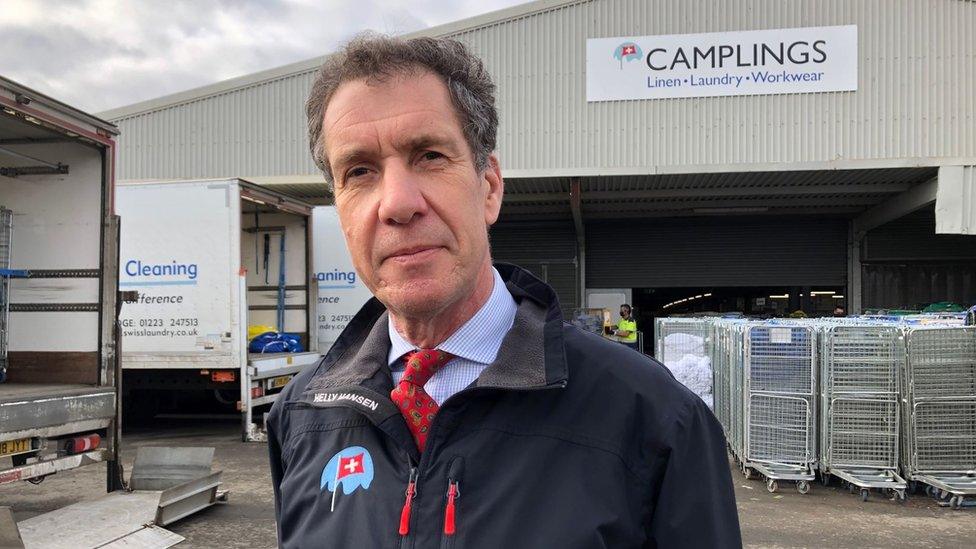
Managing director Richard Turvill says the laundry company will be look at how it can be more efficient
Richard Turvill runs a laundry company in Great Yarmouth and says his energy costs have already increased by 200% and could cost the company up to £2m a year.
"It has huge implication for us potentially and our industry and the question is how were going to deal with that," he says.
He says the company tries to plan ahead with its energy but "ultimately that cost is going to come through and it's only a matter of time, whether it's a year or two years, we need to deal with that now".
"I have to wash, I have to dry, I have to iron and I need energy to do that," he says
Mr Turvill says the government could give business "some support to make some investments" in more energy efficient products but it would not have an immediate impact.
"I have to share [rising energy] costs with my customers but do it in a managed way so we don't harm them," he adds.

'I've already had to cut back'

Laundry worker Sam Clabburn says he has already seen his energy prices rise
Sam Clabburn, who works at the laundry company in Great Yarmouth, says his energy bills "keep going up and up".
He says the price cap rise will mean he needs to "cut back somewhere else".
His energy bills have "doubled in the last two years on what I've was already spending".
"It's just more money I'm going to have to find to cover the costs," he says.
"I can try to scale down on the energy we are using but I've already had to cut back."
The chancellor announced a repayable £200 discount on energy bills but Mr Clabburn says that is "a bit pointless".
He says: "We're still going to have pay it back, it's just token gesture. I don't think it's really much of a help.
"It's not feasible in the long-term for energy prices to keep going up, it's going to have to be a change somewhere."

What help is the government providing?
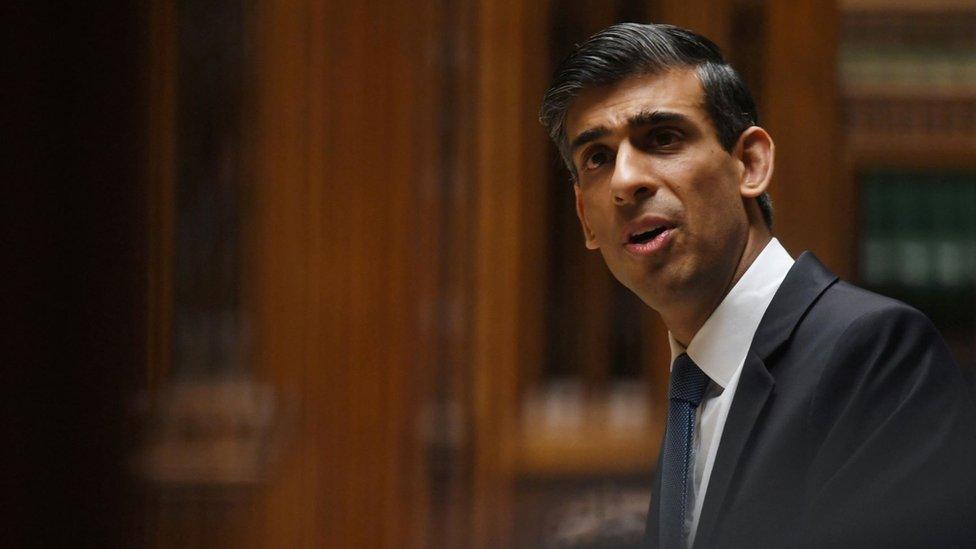
Rishi Sunak told MPs he would offer a rebate on energy bills of £200 – to be repaid by customers over five years
Chancellor Rishi Sunak says there are plans to soften the blow of the price cap rise via council tax rebates and help with bills.
This will provide the majority of families with a total of £350 to help them adjust to higher prices, he says.
It will mean a £200 discount on energy bills for households from October, which will be paid back over next five years at £40 per year starting in April 2023. Analysts suggest bills could rise again that month.
In England, households in council tax bands A to D - information you can find on your bill - will get a £150 discount from April, the chancellor says.

Find BBC News: East of England on Facebook, external, Instagram, external and Twitter, external. If you have a story suggestion email eastofenglandnews@bbc.co.uk, external
- Published3 February 2022

- Published3 February 2022
